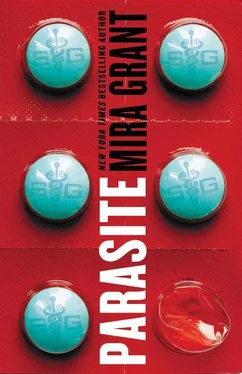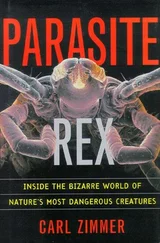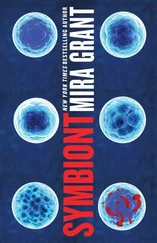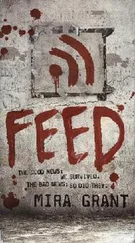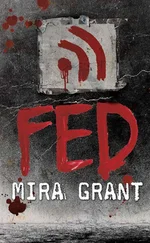If I didn’t get to safety before the drums stopped, I was never going to get to safety at all. I had to save the drums. The drums were everything.
He looked up. “That’s an odd amount of importance to place on a sound, don’t you think? What do the drums represent to you, Sally?”
“I don’t know. It was just a dream I had.” It was a dream I had almost every night. I only wrote it down because Nathan said that maybe Dr. Morrison would stop pushing quite so hard if he felt like he had something to interpret. Well, he had something to interpret, and it wasn’t making him back off. If anything, it was doing the opposite. I made a mental note to smack my boyfriend next time I saw him.
“Dreams mean things. They’re our subconscious trying to communicate with us.”
The smug look on his face was too much. “You’re about to tell me I’m dreaming about being in the womb, aren’t you? That’s what you always say when you want to sound impressive.”
His smug expression didn’t waver.
“Look, I can’t be dreaming about being in the womb, since that would require remembering anything before the accident, and I don’t.” I struggled to keep my tone level. “I’m having nightmares based on the things people have told me about my accident, that’s all. Everything is great, and then suddenly everything goes to hell? It doesn’t take a genius to guess that the drums are my heart beating. I know they lost me twice in the ambulance, and that the head trauma was so bad they thought I was actually brain-dead. If I hadn’t woken up when I did, they would have pulled the plug. I mean, maybe I don’t like the girl they say I was, but at least she didn’t have to go through physical therapy, or relearn the English language, or relearn everything about living a normal life. Do I feel isolated from her? You bet I do. Lucky bitch died that day, at least as long as her memories stay gone. I’m just the one who has to deal with all the paperwork.”
Dr. Morrison raised an eyebrow, looking nonplussed. Then he reached for his notepad. “Interesting,” he said.
Somehow I managed not to groan.
The rest of the session was as smooth as any of them ever were. Dr. Morrison asked questions geared to make me blow up again; I dodged them as best as I could, and bit the inside of my lip every time I felt like I might lose my cool. At the end of the hour, we were both disappointed. He was disappointed because I hadn’t done more yelling, and I was disappointed because I’d yelled in the first place. I hate losing my temper. Even more, I hate losing it in front of people like Dr. Morrison. Being Sally Mitchell sucks sometimes. There’s always another doctor who wants a question answered and thinks the best way to do it is to poke a stick through the bars of my metaphorical cage. I didn’t volunteer to be the first person whose life was saved by a tapeworm. It just happened.
I have to remind myself of that whenever things get too ridiculous: I am alive because of a genetically engineered tapeworm. Not a miracle; God was not involved in my survival. They can call it an “implant” or an “Intestinal Bodyguard,” with or without that damn trademark, but the fact remains that we’re talking about a tapeworm. A big, ugly, blind, parasitic invertebrate that lives in my small intestine, where it naturally secretes a variety of useful chemicals, including—as it turns out—some that both stimulate brain activity and clean toxic byproducts out of blood.
The doctors were as surprised by that as I was. They’re still investigating whether the tapeworm’s miracle drugs are connected to my memory loss. Frankly, I neither care nor particularly want to know. I’m happy with who I’ve become since the accident.
Dr. Morrison’s receptionist smiled blandly as I signed out. SymboGen required physically-witnessed time stamps for my sessions. I smiled just as blandly back. It was the safest thing to do. I’d tried being friendly during my first six months of sessions, until I learned that I was basically under review from the time I stepped through the door. Anything I did while inside the office could be entered into my file. Since those first six months included more than a few crying jags in the lobby, they were enough to buy me even more therapy.
“Have a nice day, Miss Mitchell,” said the receptionist, taking back her clipboard. “See you next week.”
I smiled at her again, sincerely this time. “Only if my doctors agree with whatever assessment Dr. Morrison comes up with, instead of agreeing with me. If there is any justice in this world, you’ll never be seeing me again.”
Maybe the comment was ill-advised, but it still felt good to see her perfectly made-up eyes widen in shock. She was still gaping at me as I turned back to the door and made my way quickly out of the office, into the sweet freedom of the afternoon air.
One good thing about being the first—and thus far, only—person to be saved from certain death by the SymboGen Intestinal Bodyguard: I wasn’t paying for a penny of my medical care, and neither were my parents. Instead, the corporation paid for everything, and got running updates from my various doctors, all of whom had release forms on file making it legal for them to give my medical information to SymboGen. It sucked from a privacy standpoint, but it was better than dying.
SymboGen developed the Intestinal Bodyguard. My father works for the government, but even they don’t know enough about what the implants can do to manage my care. So everything went on SymboGen’s bill, and the corporation kept learning about what their tapeworms can do, while I kept getting the care I needed if I wanted to keep breathing. Breathing was nice. It was one of the first things I remembered discovering on my own, and I wanted to keep doing it for as long as possible.
Even with SymboGen looking out for me, we’d had our share of close calls. Since my accident I’d gone into full anaphylactic shock multiple times, for reasons I still didn’t fully understand. The first time had corresponded with a course of antiparasitics provided by SymboGen. They were intended to help me pass my old implant—a pretty way of saying “they were supposed to kill my tapeworm and force it out of my body”—and they’d nearly killed me, too. The second and third attacks had come out of nowhere, and the attack after that had corresponded with another course of antiparasitics, different ones.
What mattered to me was that I’d nearly died each time. Without SymboGen, I would have died. I needed to remember that. No matter how much I hated the therapists and the tests and everything else, I owed my life to SymboGen.
I looked back at Dr. Morrison’s office before walking down the street to the empty bus stop. I sat down on the bench and settled in to wait. I’m patient. I’m rarely in a hurry. And I don’t drive.
Patience may be something I have in abundance, but punctuality is not. My shift at the Cause for Paws animal center was supposed to start at four o’clock. Thanks to my missing the bus—again—and having to wait for the next one—again—it was already almost five when I came charging through the door.
“I’m sorry!” I called. I shrugged off my brown leather messenger bag and hung it next to the door, where it looked dull and out of place next to Tasha’s rainbow crochet purse and Will’s electric red backpack. In an organization made up of eccentrics and chronic do-gooders, the girl with the unique medical history is the boring one.
The door slammed behind me. I flinched.
“I’m sorry,” I repeated more quietly to Tasha, who was standing next to the coffee machine with an amused expression on her face.
“You’re sorry?” she asked. “Really? You’re late, and you’re sorry about it? Truly this is unprecedented in the annals of our humble shelter. I’ll mark the calendars.”
Читать дальше
